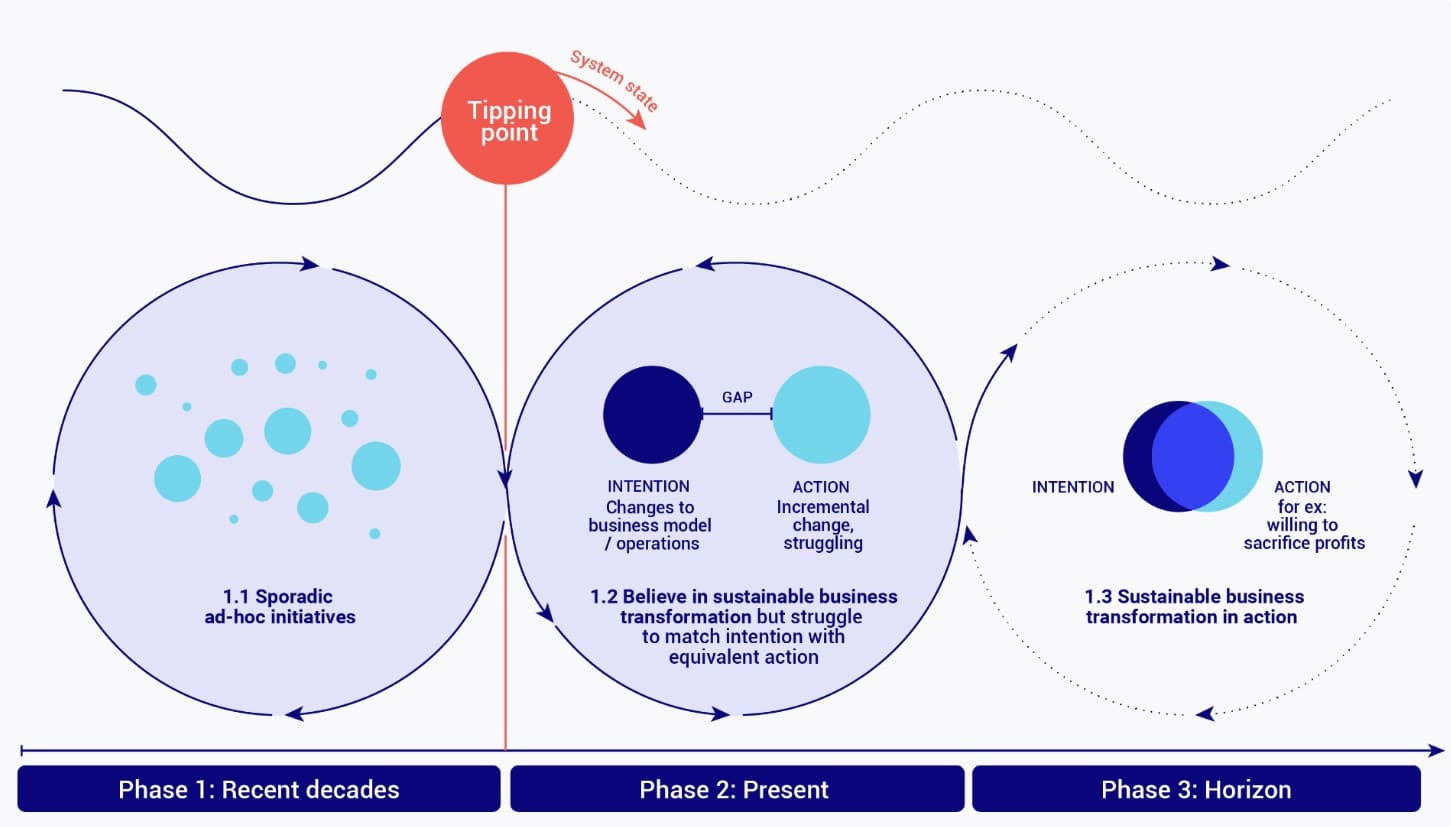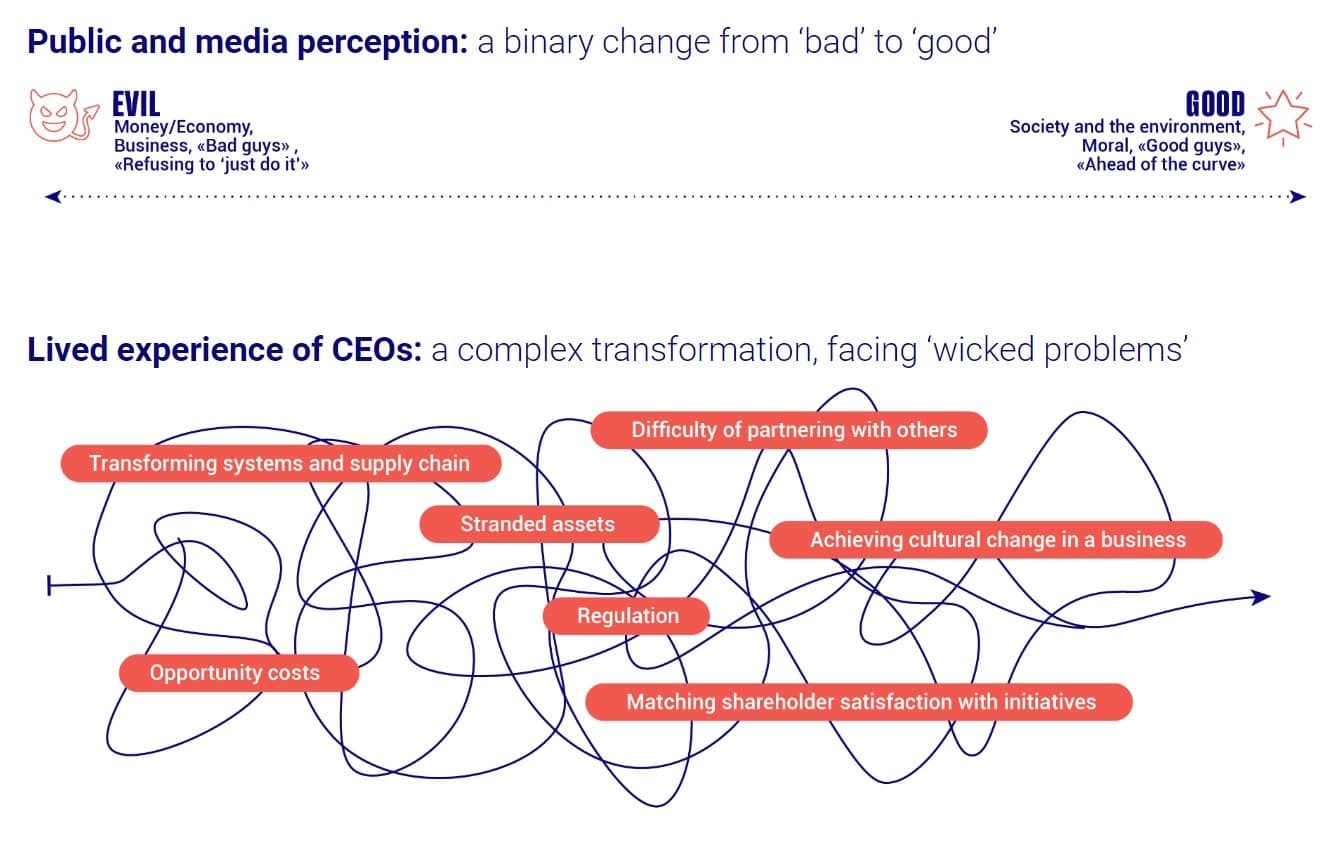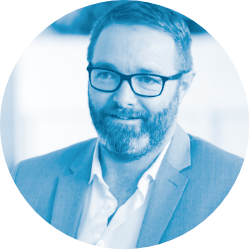
The real challenge for CEOs: Simple expectations for wicked problems
Read the full report, published by Changemaker Companies x Ashoka, here.
Last year, we spent 50+ hours interviewing the CEOs of Europe’s largest companies (500 million + turnover). We picked their brains and went deep on their perceptions, experiences and fears regarding arguably THE biggest challenge of our time: the sustainable transformation of businesses for impact (that is, changing core business models and operations, not just philanthropy). Amongst them: Vinci, Remy Cointreau, Nexity, Synlab, Metzler Bank, Boehringer Ingelheim, Coca Cola and Lockheed Martin UK (and others who preferred to stay anonymous) - as well as experts in the field such as France’s C3D, the University of Cambridge Institute for Sustainability Leadership and HEC Paris’ Olivier Sibony (academic and consultant, expert on the impact of biases on strategic decision making and best-selling author of ‘Noise: A flaw in human judgement’).
Our full report goes broad: we identify the 10 key drivers and barriers of change, outline 4 business approaches and 6 CEO mindsets, map out quantitative indicators of transformation and much more… (you can find an overview and download the full report here). Since our launch, many have asked : what was our key takeaway ? What’s the one thing we learnt from 50+ hours interviewing these incredibly hard to reach leaders of their industries ?
The first thing to know is that it isn’t about lack of awareness or concern. These CEOs have not reached their roles by mistake, they are smart, have a systemic and nuanced understanding of the world. They don’t need to be convinced that climate change is real and is coming fast. As with many human challenges today, what they are faced with is an action-intention gap: the CEOs we interviewed knew sustainability should be a part of their core strategy, but were struggling to put this into real action.

So what is causing this gap?
You won’t be surprised a core element is the complexity of the problems they are facing: in systems design these are called ‘Wicked Problems’, the multidimensional operational issues of fundamentally altering a business model (transforming systems and supply chains, stranded assets, technical complexity, matching shareholder needs and priorities, partnering with others, keeping up with changing regulation, opportunity costs, achieving cultural change internally…) But there is something more at play here - something from behavioural psychology which makes these ‘Wicked Problems’ even harder to solve.
As we began most of the interviews, entering the topic of societal and environmental impact, CEOs became defensive. This topic, it quickly became clear, is not a business topic like any other. It is framed through the lens of morality - we speak of ‘purpose’, of ‘responsibility’, of ‘commitment’, ‘equality’ and ‘inclusion’. This is why CEOs quickly feel judged from a moral standpoint. At the same time as being moral, public and media discussion around this topic area is also often simplistic. We often categorise businesses and individuals into two distinct groups:
- The good guys: society and the environment, moral, good, ‘ahead of the curve’
- The bad guys: money/economy, business, evil, refusing to ‘just do it’
This dichotomy allows us to quickly decide which entities we like and don’t like, and make our purchasing and life decisions accordingly (more on how humans try to categorise the world into simple boxes in our last article). However, this simplistic public and media perception is clashing with the complexity and ‘wicked problems’ faced by CEOs.

This clash - which one expert called ‘purpose shaming’ - is creating a defensive mindset, making CEOs reactive. In behavioural psychology we call this ‘hypocrisy avoidance’: avoiding action in order to avoid potential criticism that may come from perceived hypocritical actions and intentions. This has been echoed in other published research about the behaviours of organisations.
“We are suffering from the caricature of the super- simplifying and anti-corporate media. They live in a simple world where corporations are evil and bosses are evil” - CFO
“We must try to be heard in a hyper-mediated world. We must say what we do, do what we say, try to be pedagogical in a kind of cacophony.” ... “It makes you want to give up” ... “The criticism is systematic.” - CEO
Reflecting on these experiences of the CEOs, it is interesting to draw parallels to the social and political polarisation in broader society - where debate and action is happening in the context of the simplification of complex and nuanced issues, interaction of diverse values systems and increasing transparency and public visibility.
In this increasingly systemic and complex world, we should learn to embrace nuance and ‘Wicked Problems’, accept we are going to need to make difficult tradeoffs, and seriously improve our communication strategies to explain these.






